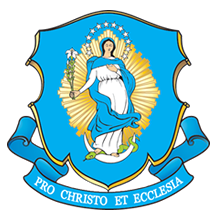
"For I do not seek to understand in order that I may believe, but I believe in order to understand."
By Kimberly Bruce
Hailed as the “Augustine of the Middle Ages” and the “Father of Scholasticism,” St. Anselm of Canterbury (feast day, April 21) is considered the foremost theologian of his age. Canonized a saint by Pope Alexander VI, St. Anselm was declared a Doctor of the Church by Pope Clement XI in 1720.
Saint Anselm is renowned for his preferred approach to scholarship in seeking to defend the faith via intellectual reasoning. He is famous for saying, “For I do not seek to understand in order that I may believe, but I believe in order to understand.”
Monastic life
Born in 1033, the son of noble landowners in Aosta, Italy, Anselm asked to be admitted to a monastery at the age of 15. Refused because the abbot feared Anselm’s harsh father, the dejected Anselm lost interest in the religious life.
After the death of his pious mother, Anselm left home for France in 1056. He studied in Burgundy, and in 1059, entered the monastic school at Bec in Normandy. Upon his father’s death, Anselm decided at age 27 to enter the monastic life. Three years later, he was made prior of his monastery.
Anselm’s quick appointment to this position was criticized by the other monks, particularly by his bitter rival, Osbern. The merciful prior succeeded in eventually persuading Osbern to lead a better life, and even cared for Osbern in the latter’s dying days. Anselm went on to become abbot in 1078.
Archbishop of Canterbury
In 1093, King William II (Rufus) of England nominated Anselm to be made Archbishop of Canterbury. Anselm did not wish to accept this position, however, and pleaded his ill-health and age. Other bishops, though, forced the pastoral staff into Anselm’s hands in the presence of the king and, literally, carried him to the cathedral.
Anselm said he would only accept the position if the king acknowledged Urban II as the legitimate pope and returned lands taken from the previous archbishop (at the time, there was an antipope named Clement III). The king agreed, later reneged, and finally acknowledged Urban as the rightful pope.
Investiture controversy
Known for defending the “procession of the Holy Spirit” to the Greeks at the Council of Bari in 1098, Archbishop Anselm was embroiled in the investiture controversy, defending the freedom of the Church and the papacy by refusing to consecrate bishops nominated by kings instead of the Church. This inflamed relations with King William and his successor, Henry I, forcing the archbishop into exile.
Undeterred, the saintly archbishop prevailed. He was also one of the first to stand against the selling of men and women as slaves.
Some of St. Anselm’s works are On the Freedom of the Will; On Original Sin; On the Fall of Satan; On the Procession of the Holy Ghost; On the Agreement of Divine Foreknowledge, Predestination, and Grace with Free Will; Why God was Made Man; and On the Belief in the Trinity. His Monologium treats of the existence and attributes of God. His Proslogium is a discourse on God’s existence and the nature of His being.
A quote from St. Anselm’s Proslogium shows what a merciful man St. Anselm was. Even today we are called, through the saint’s words, to unite ourselves with God our Father:
Come now, little man! Flee for a while from your tasks, hide yourself for a little space from the turmoil of your thoughts. Come, cast aside your burdensome cares, and put away your laborious pursuits. For a little while give your time to God, and rest in Him for a little. Enter the inner chamber of your mind, shut out all things save God and whatever may aid you in seeking God; and having barred the door of your chamber, seek Him.
Saint Anselm died on April 21, 1109, having lived 49 of his 76 years as a dedicated monk and defender of the Church. What an example!
Saint Anselm of Canterbury, pray for us!
{shopmercy-ad}
















